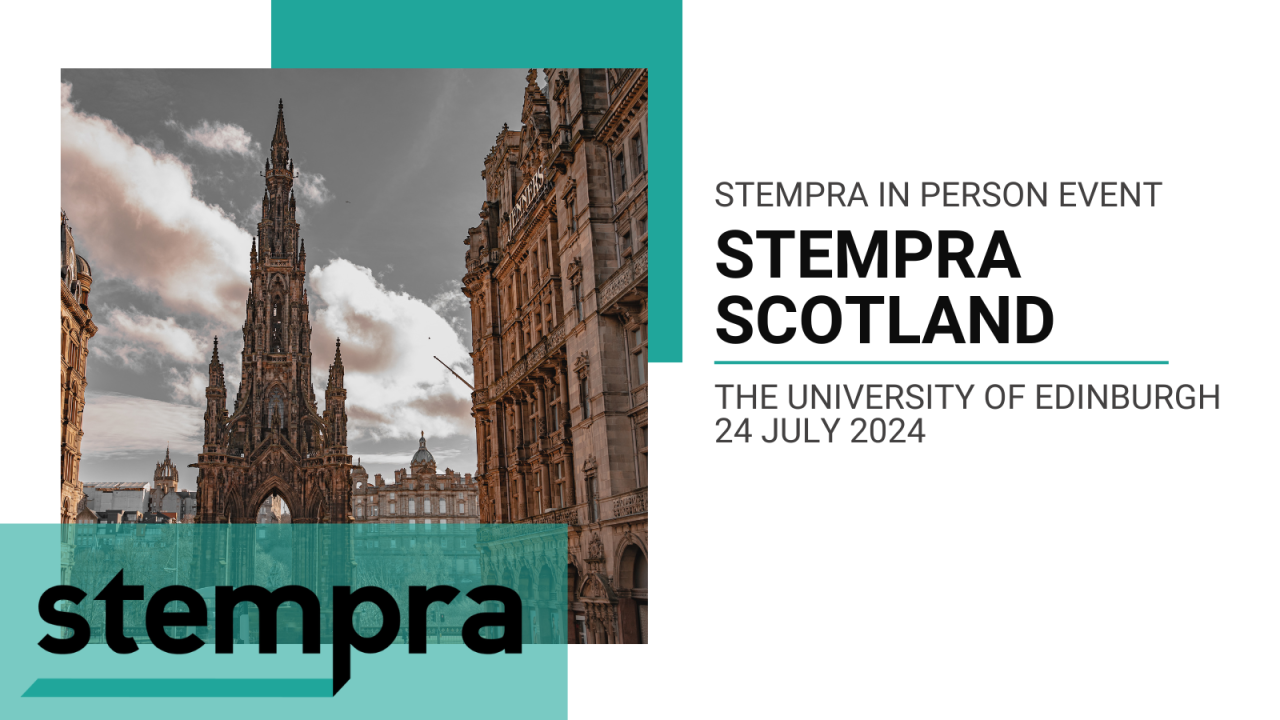Filter

Stempra Star – Alex Dirk
This newsletter’s Stempra Star is Alex Durk – Communications Manager at Springer Nature What is your job and how did you get there?I’m a communications manager at Springer Nature, the major research publisher. I work in the Journals and Editorial Communications team, primarily promoting research that is published in our journals to the global news […]

Stempra sparkles in Scotland
We hosted our first Stempra Scotland event since 2018, and what a fun, educational and engaging day it was! We had over 50 attendees, who travelled from Glasgow, the Highlands, Aberdeen, Carlisle, Northumberland and Leeds, as well as our local colleagues in Edinburgh, and who work for funders, higher education institutes, thinktanks and government bodies.

Summer ‘lunch and learn’ FREE masterclasses for Stempra members
During the warmer months of 2024, Stempra organised free lunchtime online training sessions! All members were invited to attend four masterclasses that took place through June and July. Each session was run by an expert on their topic and provided useful guidance for science communication and engagement professionals. #1. Social media for science communicators: 12-1pm Weds 5th June […]

Stempra Star – Glenn Harris
This month’s Stempra Star is Glenn Harris, Senior Media Manager at the University of Portsmouth. What is your job and how did you get there?My job is Senior Media Manager (Research Themes) at the University of Portsmouth. I manage a small but brilliant Press and Media team, who generate amazing coverage for the University, particularly […]

What is our buddy scheme?
The mentoring scheme is now open for new buddies! Whether you’ve taken part in the scheme before and would like to extend your network further, or you’re new to mentoring, the buddy scheme is an excellent opportunity to connect with other Stemprans, gain new perspectives, and advance your career. The form will be open until Friday […]

Press Officers during the pandemic
The COVID-19 pandemic has meant an unprecedented demand for science and health in the news media in 2020, but how did STEM press officers rise to this challenge?
Useful Links
- Stempra Guides
- 2019 Stempra Guide To Being A Media Officer
- Preprints: A checklist for press officers
- Specific topics
- General guides
- Sense About Science guide for scientists on how to deal with the media
- Using statistics in the media
- Resources from the Royal Statistical Society
- Making sense of statistics from Sense about Science
- Dealing with controversial issues
- The Science Media Centre’s page for press officers
- Media copyright
- Factsheet on UK copyright law
- International media
- BBC’s guides to the media landscape in each country
- Science Media Centres around the world
- Peer review
- A Peer Review guide from Sense about Science
- Useful science conferences
- The AAAS conference
- World Conference of Science Journalists
Become a member to view this content.
Join the UK’s biggest educational and research community.
Membership


